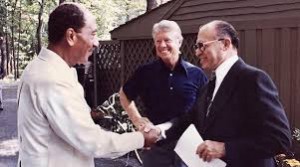Congress is the best example of the price we can pay when the rewards of public performance are greater than those of private negotiation. The recent struggle to choose a speaker makes that all too apparent.
 The familiar cliché is true: Congress is a broken institution, with public approval ratings to match. While this branch of the federal establishment was not designed to work with the efficiency of a parliament, where a head of government is chosen from the party that wins a plurality of seats, congressional dysfunction now leaves so much on the table that needs to be addressed: everything from immigration reform to timely considerations of the budget and the federal deficit. We knew this institution was in deep trouble recently when in 2013 a sizable number of members were ready to risk a government default and the dollar’s status as the world’s reserve currency. It’s now a cautionary tale retold again with the fresh realization of the goal of house members intent on hobbling the federal government.
The familiar cliché is true: Congress is a broken institution, with public approval ratings to match. While this branch of the federal establishment was not designed to work with the efficiency of a parliament, where a head of government is chosen from the party that wins a plurality of seats, congressional dysfunction now leaves so much on the table that needs to be addressed: everything from immigration reform to timely considerations of the budget and the federal deficit. We knew this institution was in deep trouble recently when in 2013 a sizable number of members were ready to risk a government default and the dollar’s status as the world’s reserve currency. It’s now a cautionary tale retold again with the fresh realization of the goal of house members intent on hobbling the federal government.
Members note that they no longer the case that they socialize after work or even share a meal while in session.
What’s wrong? What best practices for communicating in organizations are routinely ignored? Briefly, some of the overwhelming problems on Capitol Hill have their origins in two ineffective communication patterns.
The first is that the body is obviously and hopelessly organized into factions—notably parties, special interest caucuses, and their media—making it likely that members will only work in groups rather than as a whole. Since most of the process of legislating is done away from the floors of the House and Senate, it falls to party leaders, whips and members to work out in private and within their own caucuses what legislation they will accept. Differences of opinion have fewer chances to be moderated in environments that would encourage conciliation. The founders feared this hyper partisanship for good reason. Their hope to discourage the formation of “factions” and parties now seems wildly naïve.
This problem is compounded by a long tradition of individual offices set up as separate fiefdoms and spread over four buildings on the east side of the capitol. One wonders how different legislative life would be if the 100 members of the Senate worked in the conditions known to most of white-collar America–at least those still in offices: in the same ‘cubicle farm’ spread over one or two floors. This arrangement would encourage more discussion across party lines and more functional coalition-building.
 A second problem is the changing character of those seeking high public office. In the age of the internet and 24-hour news, there seems to be more interest in the expressive possibilities of serving in public office than actually doing the work of governing. The goal to become the face of a faction is all too common. The resulting political theater becomes its own reward.
A second problem is the changing character of those seeking high public office. In the age of the internet and 24-hour news, there seems to be more interest in the expressive possibilities of serving in public office than actually doing the work of governing. The goal to become the face of a faction is all too common. The resulting political theater becomes its own reward.

In the lore of Congress there has always been an expectation that the “show horses” would sometimes win out over the “work horses.” A retired Lyndon Johnson once complained to a CBS producer about the “pretty boys” created by the growth of television. The former Senate Majority leader’s point was that visual media gave rise to a new breed of members more interested in the theater of politics than finding ways to bridge differences. Even journalists are picking up the thread of rhetorical analysis that a lot of what we say is “performative:” to be studies on its own terms, but not as an instrument to achieve some other objective.
Congress is simply the best example of the price we can pay when the rewards of public performance are greater than those of private negotiation. So the institution offers some cautionary reminders to the rest of us working in complex bureaucracies. First, we can’t afford to isolate ourselves from others who we expect to sign on to our initiatives. In addition, since its a solid axiom that we more easily find comity in small groups, trying to forge leadership in large bodies needs to be seen as the problem it frequently is: the organizational equivalent of trying to get even a few dozen college professors to form a single straight line.
![]()




